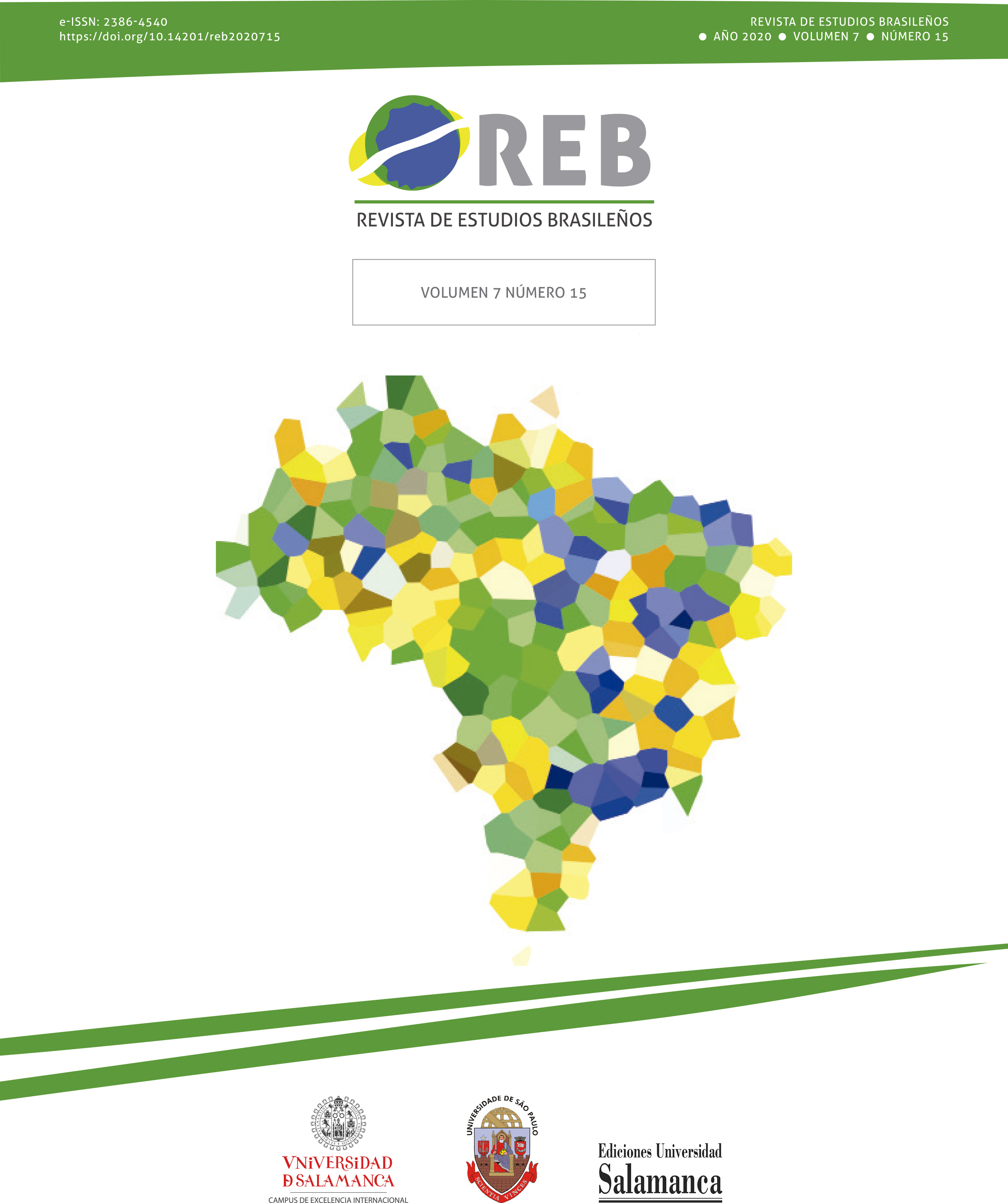The unspoken in the discourse: effects of meaning on traffic signs about indigenous presence
DOI:
https://doi.org/10.14201/reb2020715121132Keywords:
Speech, interpretation, indians, history, ideologyAbstract
Our goal is to analyze the discursive functioning of the traffic signs about the presence of indigenous people on the RS 406 and RS 324 highways. Traffic signs are a speech and, as such, present effects of meanings that can naturalize stereotyped and prejudiced sayings. The assumptions of discourse studies, especially by Pêcheux (1997), Bakhtin (2004) and Orlandi (1998), guide our reflections on the meaning of words and their linguistic materiality. In AD, we work on the understanding of language as non-transparent and also in the subject's relationship with language from the outside, language consisting of symbolic, social, historical and ideological elements, inscribed in the conditions in which they are (re)produced. Based on this meaning, the recognition of minimum guarantees of indigenous identity, the result of several struggles, marks the right to territory, a place that is still disputed today and for which new discourses are constructed, establishing new subjects. That's what the traffic signs show. In them, meanings emerge propagated by the reproduction of the colonizer´s discourse, whose knowledge constitutes the social imaginary about the indigenous people as subjects deprived - rationally and culturally - of autonomous living conditions, in need of preservation.
Downloads
References
Alencar, J. de. (2004). O Guarani. São Paulo: Ática.
Bakhtin, M. (2003). Estética da Criação Verbal (Trad. P. Bezerra). São Paulo: Martins Fontes.
Bakhtin, M. (2004). Marxismo e Filosofia da Linguagem. São Paulo: Hucitec.
Brasil. (2007). Manual Brasileiro de Sinalização de Trânsito. Sinalização Vertical de Advertência (Vol. II). Brasília: Conatran.
Constituição da República Federativa do Brasil de 1988. (1988) Brasília, Distrito Federal, Brasil. Recuperado de [http://www.planalto.gov.br]. Consultado [20-02- 2020].
Ferreira Filho, B. R. (2020). Floresta de signos sombrios: introdução à Amazônia de Inglês de Souza. Revista de Estudios Brasileños, 6(13), 115-126.
Fundação Nacional do Índio (FUNAI). Terra indígena, o que é? Recuperado de [http://www.funai.gov.br/index.php/nossas-acoes/demarcacao-de-terras-indigenas]. Consultado [20-02-2020].
Houaiss, A. (2001). Dicionário Houaiss da Língua Portuguesa. Rio de Janeiro: Ed. Objetiva.
Mariani, B. S. C. (2003). Os primórdios da imprensa no Brasil (ou: de como o discurso jornalístico constrói memória). In: E. P. Orlandi (Org.). Discurso fundador: a formação do país e a construção da identidade nacional. Campinas: Pontes.
Miranda, C. O. (2008) Uma leitura discursiva do falar sobre o índio na mídia impressa contemporânea de mato grosso. Dissertação de mestrado, Universidade Federal de Mato Grosso, Cuiabá, Mato Grosso, Brasil.
Orlandi, E. P. (2002). Língua e Conhecimento linguístico. Para uma História das Ideias no Brasil. São Paulo: Cortez.
Pêcheux, M. (1997). Semântica e discurso: uma crítica à afirmação do óbvio (Trad. E. Orlandi, et al.). Campinas: Unicamp.
Pêcheux, M. (2006). O discurso: estrutura e acontecimento (Trad. E. Orlandi). Campinas: Pontes.
Schaden, E. (1997). O índio brasileiro: imagem e realidade. Revista de História, LV(110).
Taukane, D. I. (2001). Avanços e impasses na educação escolar indígena: a experiência dos Kurâ-Bakairi. In D. Taukane & et al.. Questões da Educação Escolar Indígena: da formação do professor ao projeto de escola. Brasília, Campinas: FUNAI/DEDOC, ALB.
Downloads
Published
Issue
Section
License
Copyright (c) 2021 Vejane Gaelzer, Raquel Ribeiro Moreira

This work is licensed under a Creative Commons Attribution-NonCommercial-NoDerivatives 4.0 International License.


